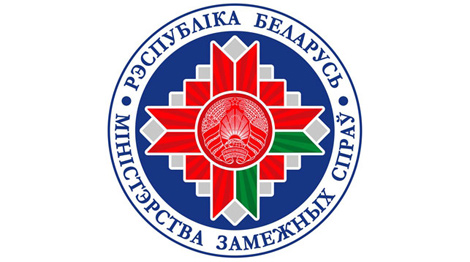Events
Belarus’ foreign ministry releases foreign policy review 2018

MINSK, 4 February (BelTA) – The Annual Review of Foreign Policy of the Republic of Belarus and Activities of the Ministry of Foreign Affairs in 2018 has been posted on the official website of the Ministry of Foreign Affairs, BelTA has learned.
“Geopolitical outcomes of 2018 have revealed a fundamental crisis in international relations that is spilling over into new regions. The international situation was getting increasingly unstable and unpredictable threatening a more permanent deterioration of the global environment.”
The major challenges include increasing competition and mistrust between the leading international players and centers of power; ‘simmering’ regional conflicts and new areas of instability; escalation of economic tensions, trade wars, sanctions and countersanctions; a threat to the international system of arms control and a throwback to the arms race; emergence of principally new threats to international security in the cyberspace. “All this pushes the world to the verge of a new cold war, a global geopolitical, economic, military and ideological confrontation, and enhances the likelihood of ‘a big conflict’ involving global powers,” the review reads.
In 2018 Belarus was exposed to the risk of an increasing confrontation. In this challenging environment, the country sharpened its focus on sovereignty and territorial integrity, it remained committed to an independent, balanced and multi-vector foreign policy, integration in the Eurasian space and efforts to bring its integration aspirations into line with other associations and projects, and to strengthen security in the region and the world. The document says that “staying committed to the strategic partnership with the Russian Federation, Belarus continued a meaningful dialogue with the European Union, its member countries and other Western powers, the United States of America.” Belarus strengthened ties with the states of Asia, the Middle East, Africa, and Latin America to promote cooperation on a wide range of issues of mutual interest, diversify foreign economic activity and secure a foothold on new markets.
One of Belarus’ priorities in the international arena is economic diplomacy aimed at ensuring economic security, achieving equal distribution of exports between the three markets: the EAEU, the EU and the distant regions.
Being one of the initiators and an active participant of the integration processes in Eurasia, Belarus continued its efforts to achieve the main integration priority within the EAEU, which is the development of an economic union without derogations and restrictions. Belarus’ initiative The Integration of Integrations, which gained popularity in 2018, was consistently promoted in the international arena.
“Belarus reaffirmed its role as a country capable of generating and implementing the unifying initiatives, particularly in the area of regional security. The Belarusian ideas of non-confrontational cooperation and a broad international dialogue to overcome the existing contradictions in the common space of the Euro-Atlantic and Eurasian regions were filled with concrete content during the events held in Minsk in 2018, namely: the Minsk Dialogue Forum: Eastern Europe: In Search of Security for All (23-25 May); the high-level international conference "Preventing and Countering Terrorism in the Digital Age" (9-10 October); the Munich Security Conference Core Group Meeting (31 October-1 November). Thus, Minsk reaffirmed its role of an international host site to discuss and propose solutions to the most complicated global and regional problems,” reads the review.
The Minsk agreements remain one of the key mechanisms for the settlement of the situation in the east of Ukraine. In 2018 Belarus hosted more than 20 meetings in the framework of the Trilateral Contact Group.
International contacts at the highest and high levels remained intensive in 2018. Last year saw 13 visits of the Belarusian president, seven visits of the prime minister, six visits of the minister of foreign affairs. Last year Belarus hosted 46 official delegations of foreign states (nine visits of the heads of state, 13 visits of the heads of government, 24 visits of ministers of foreign affairs).
After its optimization in 2017-2018, Belarus’ network of foreign establishments covers 57 countries (or 109 taking into account concurrent accreditation). Belarus hosts 48 embassies, four offices of embassies, three trade missions, 39 consulates of foreign states, and 18 missions of foreign organizations and 91 foreign diplomatic missions with concurrent accreditation based in Moscow, Vilnius, Warsaw, and Kiev.
In 2018, Belarus continued the gradual liberalization of the visa policy. The country relaxed visa requirements and increased the period of the visa-free stay. The government supported the initiative of the Ministry of Foreign Affairs to draw a national tourism promotion strategy.
“The Day of Diplomatic Worker, the medals 100 Years of Diplomatic Service of the Republic of Belarus and the heraldic symbols of the Ministry of Foreign Affairs: emblem, flag, insignia and awards were instituted by the decree of the Belarusian president. That was an important recognition of the profession of a diplomat, the contribution of the foreign service to the development of Belarusian statehood, and promotion of foreign political and foreign economic interests of our country,” the review reads.







 print version
print version make home page
make home page add to bookmarks
add to bookmarks

